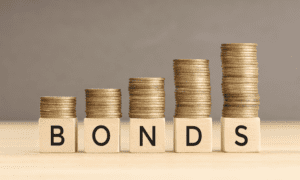Payday loans are short-term, high-interest loans that are typically due on the borrower’s next payday. It is often used to cover unexpected expenses or to bridge a temporary gap in cash flow. They can be obtained through storefront payday lenders or online. These loans can be very expensive and can lead to a cycle of debt if not paid off quickly. Consumers are advised to use these loans with caution and to consider alternative options such as borrowing from a bank or credit union.
Payday loans should be used with caution and as a last resort. Here are a few things to keep in mind when considering a payday loan:
- Only borrow what you can afford to pay back: Payday loans come with high interest rates and fees, so it’s important to make sure you can afford to repay the loan on your next payday. Opt for Complete Loan Solutions before you opt for any pay day loans.
- Understand the terms and conditions: Make sure you understand the interest rate, fees, and repayment terms of the loan before you agree to it.
- Have a plan to repay the loan: Make sure you have a plan in place to repay the loan on time to avoid additional fees and interest charges.
- Shop around: Compare rates and terms from different lenders to find the best deal.
- Consider alternatives: Payday loans should be considered as a last resort. Consider other options, such as borrowing from family or friends, using a credit card, or applying for a personal loan from a bank or credit union.
- Be aware of the laws in your state: Payday lending laws vary by state, so make sure you understand the laws in your state before applying for a loan.
It is important to remember that payday loans can be very expensive and can trap borrowers in a cycle of debt if they are not used responsibly.
Here are a few alternatives to payday loans that you may want to consider:
Personal loans from a bank or credit union: Personal loans from a bank or credit union typically have lower interest rates and longer repayment terms than payday loans.
Credit cards: If you have good credit, you may be able to get a credit card with a low interest rate.
Borrowing from family or friends: This can be a good option if you don’t want to incur additional debt or pay high interest rates.
Community assistance programs: Many local non-profit organizations and charities offer assistance to those in need.
Emergency assistance programs: Some government programs, such as TANF (Temporary Assistance for Needy Families) or SSI (Supplemental Security Income), may provide financial assistance to those in need.
Salary advances: Some employers may offer salary advances, which allow employees to borrow against their future paychecks.
Negotiating payments: If you are having trouble making payments on bills or debts, try contacting the creditor to see if they will allow you to make payments over time.
It is important to remember that these alternatives may not be available to everyone, and each may have its own set of pros and cons. It’s always a good idea to weigh your options carefully before making any financial decisions.



































